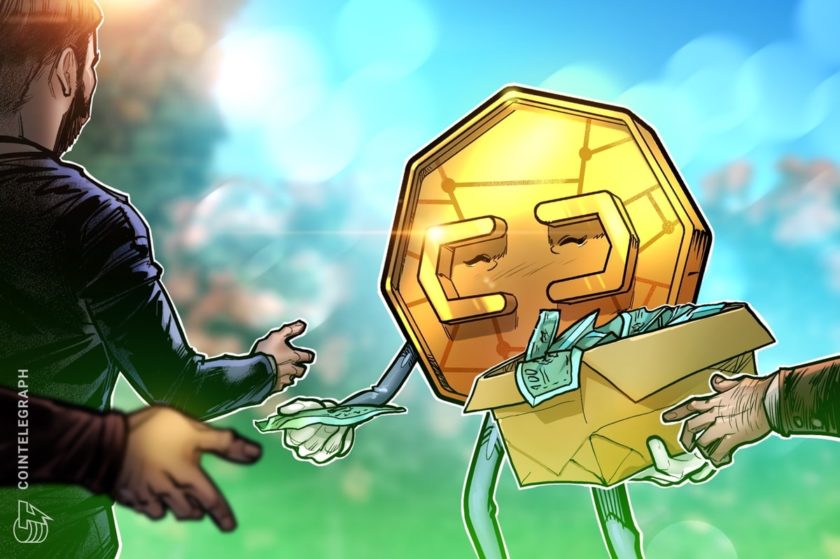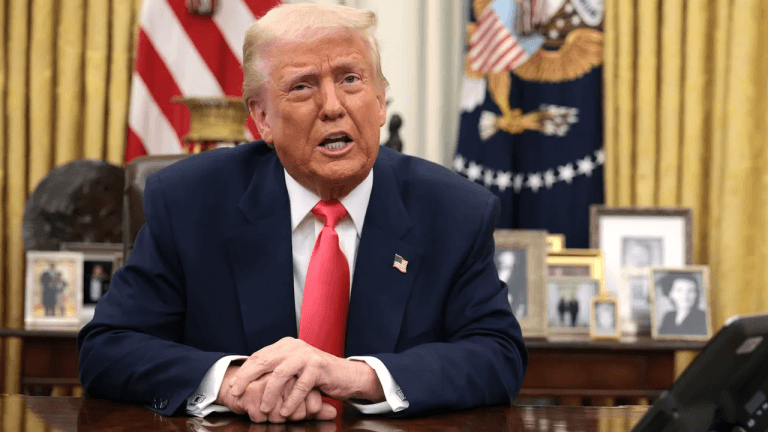A curated selection of meaningful moments in August that are bringing us all closer to realizing an open financial system for the world.
Artists Ai Weiwei and Kevin Abosch create conceptual art called Priceless on the Ethereum blockchain
Berlin-based Chinese artist Ai Weiwei has partnered with New York-based Irish artist Kevin Abosch to explore the concept of value in a work called PRICELESS. The work is largely made up of two standard ERC-20 tokens on the Ethereum blockchain, with PRCLS as its ticker. The works feature blockchain wallet-address alphanumerics representing different “priceless moments” shared between the artists. Each wallet is filled with a nominal amount of PRCLS token, validating the wallet and “symbolically inoculating the moment.”
Crypto accepted for first time as official donation for a U.S. presidential candidate
Andrew Yang, who is currently campaigning for the 2020 US presidency on the Democratic Party ticket, announced that he will accept bitcoin and any ERC-20 tokens as forms of donation. Donors who choose to give to the campaign using crypto will be verified through Yang’s compliance team by phone. The maximum allowed amount will be $2,500.
Blockchain is the fastest growing skill for US freelancers: Upwork
In the most recent release of its quarterly Skills Index, Upwork, a global freelancing site, reported that blockchain topped the list as the fastest growing skill in Q2 out of more than 5,000 skills for the second consecutive quarter. The Skills Index calculates growth rates years over year based on freelancer billings. By that measure, blockchain experienced more than 3,500 percent year-over-year growth.
Turkey establishes the country’s first blockchain center
The Istanbul Blockchain and Innovation Center (BlockchainIST Center) was inaugurated at Bahçeşehir University (BAU). According to the center’s director Bora Erdamar, as reported in the local news outlet Daily Sabah, BlockchainIST aims to be “the most important center of research and development and innovation in Turkey in which scientific studies and publications are made in blockchain technologies.”
Zcash has announced its latest release, 2.0.0, which is compatible with the Sapling network performance upgrade, making it possible for developers to have cheaper access to the privacy features of the token. . . .With the launch of Flowertokens, the terra0 group is experimenting with tokenizing physical, natural objects on the Ethereum blockchain. Through the project, you can purchase either portions of an object or a complete physical object in real life, starting with dahlias (using ETH).
Coinbase Wallet features decentralized apps (or Dapps), which are apps powered by crypto. With Dapps, you can actually use your crypto in games, earn crypto, trade crypto, and more. Here’s a selection of what’s new and popular this month:
Popular Dapps
- Gods Unchained: A turn based card game similar in style to Magic: The Gathering and Hearthstone
- Peepeth: A blockchain-powered decentralized social network
- CryptoArte: Algorithmically generated art based on the Ethereum blockchain
- Cent: Earn crypto by answering questions and helping others
Recently Added
- MLB Crypto Baseball: One of the first Dapps to license IP from a major franchise
- CryptoGoods Swag: Create unique, physical goods like shirts, mugs, and iPhone cases with the cryptogoods you own
- Cryptovoxels: A virtual world on the blockchain where you can build and explore
- John Orion Young: Art made in virtual reality and traded on the Ethereum blockchain
- Tok’n’Talk: Social media that only the holders of an asset or a collectible can take part in
Yale economists study risks and returns of cryptocurrency: National Bureau of Economic Research
Yale Economics professor Aleh Tsyvinski and Economics Ph.D. candidate Yukun Liu analyzed years worth of past price data for Bitcoin, Ripple and Ethereum and created an index of exposures to cryptocurrencies of 354 industries in the US and 137 industries in China, which they published in a paper with the National Bureau of Economic Research. “Cryptocurrencies have no exposure to most common stock market and macroeconomic factors,” the authors state. “They also have no exposure to the returns of currencies and commodities. In contrast, we show that the cryptocurrency returns can be predicted by factors which are specific to cryptocurrency markets. . . . .We establish that the risk-return tradeoff of cryptocurrencies (Bitcoin, Ripple, and Ethereum) is distinct from those of stocks, currencies, and precious metals.” (The prices studied for bitcoin span from 2011 to 2018, while Ripple’s XRP and Ethereum’s ether data begins at the newer currencies’ inceptions in 2012 and 2015, as reported by CNBC.)
Banks can save $27 billion annually by 2030 by adopting blockchain: Juniper Research
Market intelligence firm Juniper Research predicts that banks that integrate blockchain will achieve cost reductions amounting to over $27 billion before the end of 2030, as published in a report “The Future of Blockchain.” The savings would come not just in payment processing and reconciliation, but also in treasury operations and compliance.
Two politicians officially disclose crypto holdings in their 2017 Financial Disclosure statements
- Bob Goodlatte is the first first member of Congress to disclose crypto holdings. The chair of the House Committee on the Judiciary indicated that he owned between $15,001 and $50,000 worth of BTC, while also holding positions in BCH and ETH valued at between $1,001 and $15,000 each. (His son, Bobby Goodlatte, is an angel investor in Coinbase.)
- U.S. Representative Tulsi Gabbard of Hawaii disclosed that she bought litecoin and ether late last year.



